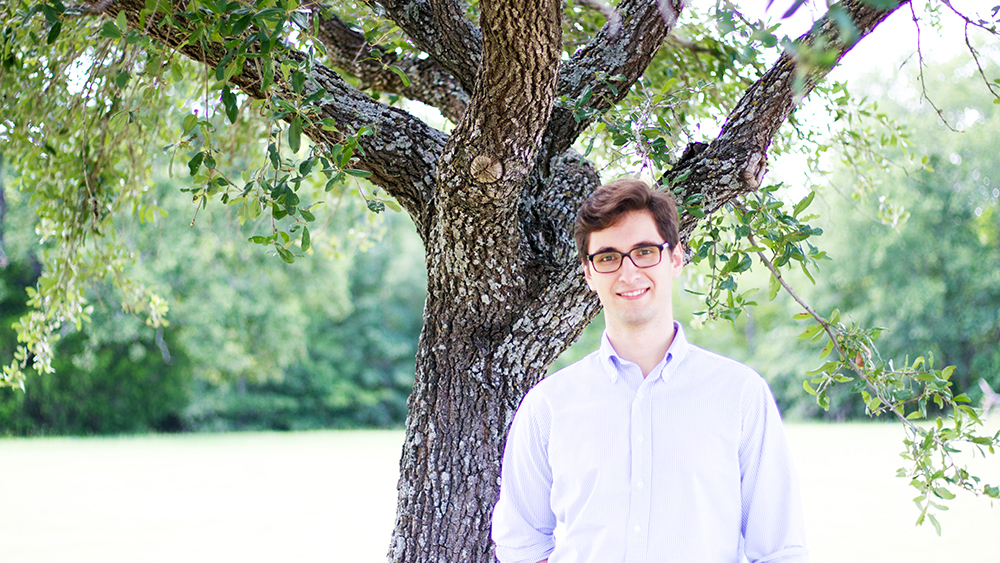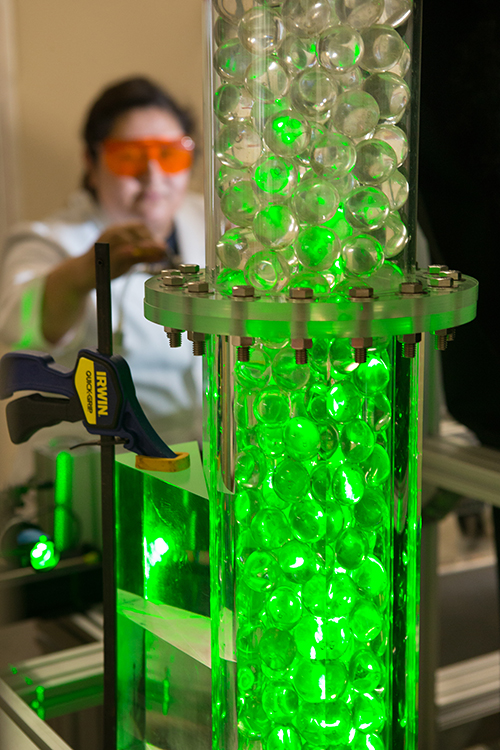
The U.S. Department of Energy selected Stephen King ’18, a nuclear engineering student, for a 2018 Innovations in Nuclear Technology R&D Award. King is currently working in the Texas A&M University Thermal-Hydraulic Research Laboratory and conducting experiments on the pebble bed facility. He won the undergraduate student competition with his article "Pressure Drop Measurements in a Versatile Experimental Facility of Packed Spheres." King performed high spatial and temporal resolution measurements, then used the results for code validation and model development. The pressure drop across the reactor core is critical for reactor design because it is related to flow distribution, pumping power and operational cost. The ongoing project is funded by the Department of Energy through the Nuclear Engineering University Program.
King graduated in May and will complete his Master of Science degree in 2020, then pursue his Ph.D. in nuclear power engineering. Why did he choose to study nuclear engineering? “Joining the Thermal Hydraulic Lab my sophomore year really struck a chord with me,” said King. “I was able to develop a passion for it. As the years went on and I learned more in the classroom, the more advanced work I could do. It never felt boring or like I wanted to do anything else because there was always something new.”
A Remarkable Future
Within nuclear engineering, King saw a remarkable future. Not just on the energy side of things, or even in nuclear space propulsion and fusion, but there was a tremendous amount of work and complexities people were actively trying to solve. “For some reason, it was always a puzzle we could not quite put together, and these puzzles were all over nuclear,” said King. He pointed out that the field is still new, only 60 years old, allowing innovation to flourish.
The lab King works at is thermal hydraulics based with a focus on heat transfers and fluid flow. “The flow concept is what captures my interest,” said King. “Coming from a family of engineers, my grandfather, my mother
King explained that when he completed his experiment, it felt like he had solved the puzzle — only to look back and see more. “There’s a joke graduate students tell undergraduate students. ‘Once you graduate undergrad, you think you know everything. Once you’re in your master’s program, you realize you don’t know anything.’ There are a lot of things in the nuclear field we’re still trying to understand. The more we find out, the more we desire to learn and build on that knowledge.”
The things that are challenging, the things we don’t know yet, have become a wondrous puzzle. And once you find the right puzzle — that’s more than enough.

King is currently working on an advanced continuation of the pressure drop experiment. His team completed the pressure drop measurements using different sphere sizes, which resulted in different ratios and different scales of the geometry. They are testing a variety of factors that may result in a different distribution pressure.
In addition to conducting experiments, a significant part of King’s day to day life as a graduate student involves studying and reading past data. “We read to understand our beginning until now,” said King.
The pebble bed research team includes a mix of undergraduate and graduate students, Dr. Thien Nguyen and department head Dr. Yassin Hassan. The escalating complexity of the project has brought everyone together. “A team can tackle something bigger than one person,” said King. “There’s a lot of work left to be done. It’s up to us decide what to commit our time to